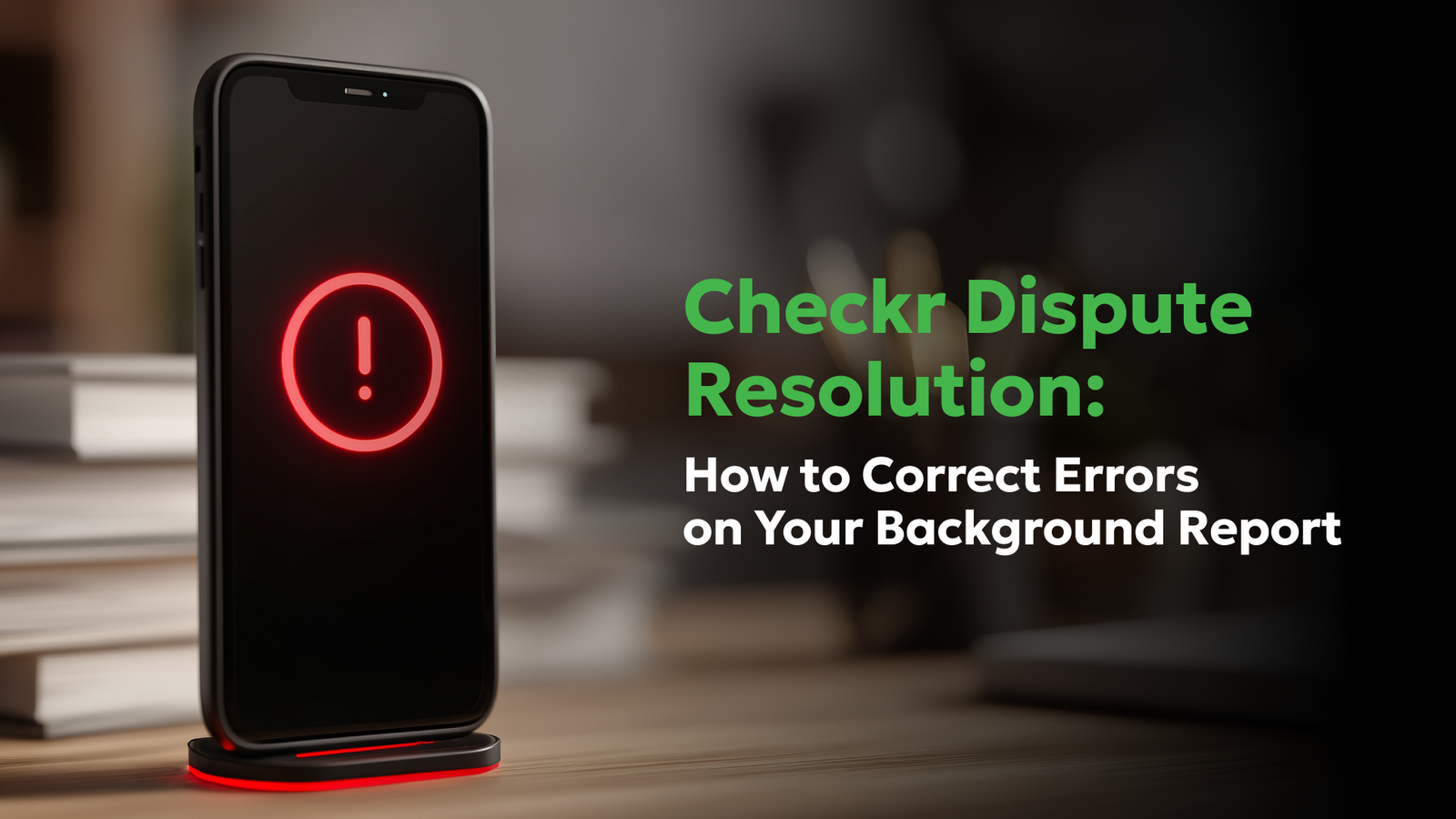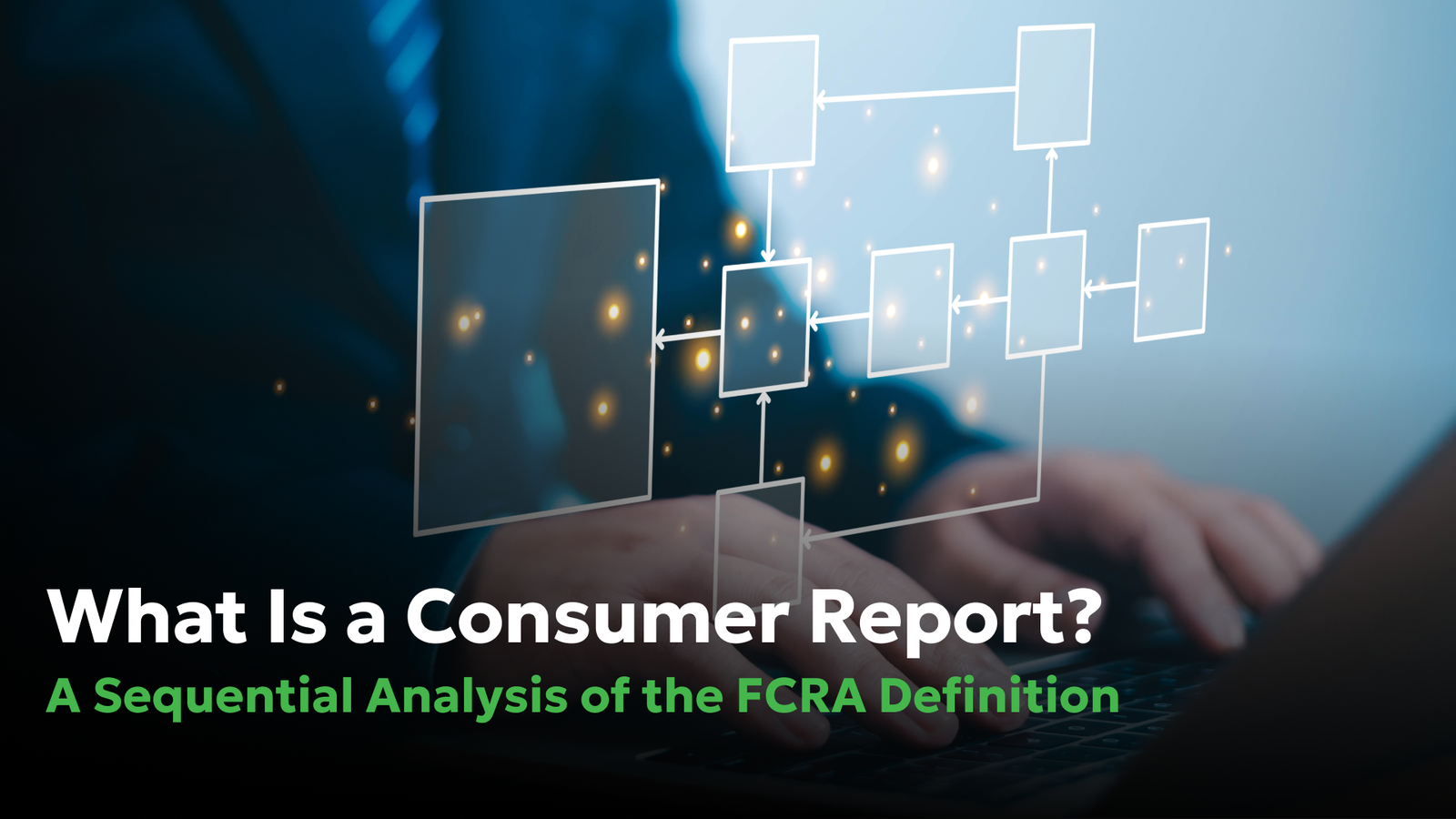All About State Background Checks: A Complete Guide
- Blog
- All about FCRA
All About State Background Checks: A Complete Guide

Need a state background check? Here’s everything you need to know about the process, experience, and what can go wrong.
Even though the state background check is limited in scope, mistakes and inaccuracies can and do happen. From employers and landlords to licensing agencies and schools, state background checks are common. The law requires state agencies to report accurate information about you. But that’s not always the case. Here’s what you need to know.
The background check lawyers at Consumer Attorneys have seen thousands of people face unnecessary hardships due to mistakes, inaccuracies, falsehoods, or “simple” misunderstandings in their background checks. This article explains what we have learned about state background checks. The best way to protect yourself against erroneous state background checks or state background checks that do not comply with relevant laws is to gather knowledge.
This article provides an overview of state background checks, an employer’s responsibilities, and your rights. If you have any additional questions or have been harmed by a poorly handled state background check, contact one of our background check lawyers today.
What is a State Background Check?
A state background check is a review of a person’s criminal history and other relevant information within a specific state. It involves searching, examining, and retrieving relevant information from state databases containing records of arrests, convictions, and other legal issues.
Employers, landlords, schools, volunteer organizations, and other entities use state background checks to make informed decisions about hiring, renting, and other activities that allow people access to property, work, schools, or anything else deemed worthy of protection.
Understanding what a state background check entails can help you prepare for the process and address any potential issues proactively.
What is the Difference Between State and Federal Background Checks?
The main difference between state and federal background checks lies in the scope of the search.
| State Background Check | Federal Background Check |
| Focuses on criminal records and other relevant information within a single state. | Involves a nationwide search of criminal records across multiple states and federal databases. |
| Examines databases managed by state agencies, such as the state police or the Department of Justice (DOJ). | Includes information from federal databases, such as the FBI’s National Crime Information Center (NCIC). |
| Commonly required for employment, licensing, and rental applications. | Often used for jobs requiring a higher level of security clearance or positions in federal agencies. |
How Far Back Does A State Background Check Go?
The timeframe for how far back a state background check can go varies by state. Some states limit background checks to seven years, while others allow for a 10-year period.
7-Year Background Check States
In states with a seven-year limit on background checks, employers can only consider criminal history from the past seven years. However, there are exceptions based on the salary of the job position or the nature of the job.
| State | Law Limiting to 7 Years | Exceptions/Special Circumstances |
| California | CA Civil Code § 1786.18 | Exceptions for positions with salaries over $125,000 annually |
| New York | NY General Business Law § 380-j | Exceptions for jobs paying over $25,000 annually |
| Texas | TX Business & Commerce Code § 20.05 | Exceptions for positions with annual salaries over $75,000 |
| Colorado | CO Rev Stat § 12-14.3-105.3 | Exceptions for executive positions or jobs paying over $75,000 |
| Maryland | MD Code, Commercial Law § 14-1204 | Exceptions for positions in the financial sector |
| Massachusetts | MA Gen L ch 6, § 172 | Exceptions for certain types of employment like childcare |
10-Year Background Check States
In states that allow a 10-year background check, employers can review an individual’s criminal history for the past decade. Some states have specific exceptions or conditions under which employers or landlords can limit or extend these checks.
| State | Law Allowing 10 Years | Exceptions/Special Circumstances |
| Florida | FL Statutes § 435.12 | No special exceptions noted |
| Illinois | IL Compiled Statutes 720 ILCS 5 | Exceptions for certain healthcare and childcare positions |
| Pennsylvania | PA Consolidated Statutes Title 18 | Exceptions for jobs in education and healthcare |
| Georgia | GA Code § 35-3-34 | Exceptions for jobs involving vulnerable populations |
| Nevada | NV Rev Stat § 179A.180 | Exceptions for jobs in gaming and financial services |
| Virginia | VA Code § 19.2-389 | Exceptions for government positions requiring security clearance |
What States Do Not Require a Background Check?
A majority of states do not require background checks for employment, giving employers the discretion to decide whether to conduct them. Here are the states with no specific laws requiring background checks.
| State | Exceptions/Special Circumstances |
| Alabama | Employers may still require at their discretion |
| Alaska | Employers may still require at their discretion |
| Arizona | Specific sectors such as healthcare may have different requirements |
| Arkansas | Employers may still require at their discretion |
| Connecticut | Specific sectors such as education and childcare |
| Delaware | Employers may still require at their discretion |
| Idaho | Employers may still require at their discretion |
| Indiana | Specific sectors such as healthcare may have different requirements |
| Iowa | Employers may still require at their discretion |
| Kansas | Employers may still require at their discretion |
| Kentucky | Specific sectors such as healthcare may have different requirements |
| Louisiana | Employers may still require at their discretion |
| Maine | Specific sectors such as healthcare may have different requirements |
| Michigan | Specific sectors such as healthcare may have different requirements |
| Minnesota | Employers may still require at their discretion |
| Mississippi | Employers may still require at their discretion |
| Missouri | Specific sectors such as healthcare may have different requirements |
| Montana | Employers may still require at their discretion |
| Nebraska | Employers may still require at their discretion |
| New Hampshire | Specific sectors such as healthcare may have different requirements |
| New Jersey | Employers may still require at their discretion |
| New Mexico | Specific sectors such as healthcare may have different requirements |
| North Carolina | Employers may still require at their discretion |
| North Dakota | Employers may still require at their discretion |
| Ohio | Specific sectors such as healthcare may have different requirements |
| Oklahoma | Employers may still require at their discretion |
| Oregon | Specific sectors such as healthcare may have different requirements |
| Rhode Island | Employers may still require at their discretion |
| South Carolina | Specific sectors such as healthcare may have different requirements |
| South Dakota | Employers may still require at their discretion |
| Tennessee | Specific sectors such as healthcare may have different requirements |
| Utah | Employers may still require at their discretion |
| Vermont | Specific sectors such as healthcare may have different requirements |
| Virginia | Employers may still require at their discretion |
| Washington | Specific sectors such as healthcare may have different requirements |
| West Virginia | Employers may still require at their discretion |
| Wisconsin | Specific sectors such as healthcare may have different requirements |
| Wyoming | Employers may still require at their discretion |
How to Run a State Background Check
For employers, running a state background check involves several steps. Here’s a straightforward guide:
- Identify your state’s requirements. Check the specific state laws regarding background checks. Different states have different requirements, so knowing what applies in your case is important.
- Obtain consent. Get written consent from the individual. You must have explicit permission before you do a background check.
- Contact a background check company. Request a background check from a company that regularly does business in your state, knows the relevant state agency, retrieves information, prepares reports with reasonable care, and has a record of providing accurate and comprehensive reports.
- Submit the required information. Provide details like the individual’s name, date of birth, and social security number. Accurate information is crucial for a thorough check.
- Review the results. Once you receive the report, carefully review the background check report. If you are taking adverse action, e.g. not hiring or not leasing to someone because of information on the report, there are additional steps you have to take to alert the applicant whose background check you ran.
Individuals can also do background checks on themselves. You can hire a background check company or you can access the databases of relevant state agencies online and check them yourself. It is a good idea to do this before you apply for a job or an apartment or mortgage so you can review information and address any errors or inaccuracies.
How Long Does A State Background Check Take?
The time it takes to complete a state background check can vary. Typically, it ranges from a few days to several weeks, depending on the state and the complexity of the check. Expect it to take between one to two weeks. Factor in this time frame when planning for employment, rental applications, or other activities requiring a background check.
Conclusion
Understanding state background checks is essential for employers, employees, and those who want to be employees. These checks help ensure safety and trust but can also be a source of stress if not handled correctly. A consumer lawyer at Consumer Attorneys can help you navigate these processes smoothly. They can answer questions like, “Does a background check affect credit scores?” If necessary, they can also represent you in legal action should something go awry.
Call us at 1-877-615-1725 to speak with a live representative. Email us at info@consumerattorneys.com, fill out a contact form on our website, and let us know the best time to reach you. You can also visit our website and chat with a live representative online.
Background check companies must conduct background checks fairly and accurately to avoid unnecessary hardships. We can help.
Frequently Asked Questions
Few states have specific laws prohibiting employers from considering pending charges on a background check. Some states, such as California and New York, have laws that limit the use of arrest records that did not result in a conviction. Much of this will depend on how long ago the arrest took place, the crime for which the person was arrested, and the state of the pending criminal charge. It’s essential to check the specific laws in each state, as they vary widely and can impact how pending charges are handled in the employment screening process. A background check lawyer at Consumer Attorneys can help you.
Yes, your criminal record will follow you if you move to another state. Criminal records are typically maintained in national databases like the FBI's National Crime Information Center (NCIC). This allows landlords, schools, law enforcement agencies, and employers to access your criminal history regardless of where the crimes occurred or where you were convicted. This means that even though a state background check is limited to one state, criminal records from other states will still appear in that state background check.
A felony conviction in one state will usually appear in another state's databases. Most states use national databases that collect, compile, and track criminal history. Employers, landlords, and law enforcement agencies conducting background checks can see felony convictions regardless of where the conviction happened. This helps all those conducting background checks to gather all relevant information.
A statewide criminal background check examines criminal records within a single state. This type of check accesses databases maintained by state agencies, such as the state police or the state’s justice department, to uncover a person’s criminal history recorded within that state. Statewide criminal background checks are commonly conducted for employment, professional licensing, leases and rentals, schools, and other volunteer positions. The entities that provide access to their people, records, offices, and data must confirm that people are who they say they are and do not pose a threat.
The time it takes to complete an out-of-state background check can vary widely depending on the background check company used, the methods they use, what states are involved, how many states are involved, and the responsiveness of the states involved. Generally, it can take anywhere from a few days to several weeks. The process requires a background check company to contact state agencies, request records, access those records, and then compile them into a report. All of this requires coordination between different agencies, compliance with various legal requirements, and patience.
All states in the U.S. have the technical capacity and capability to conduct background checks. However, the extent and rigor of background checks can vary by state. Additionally, some states require background checks for certain jobs. Some states may have more lenient policies regarding what can be included in a background check, while others may have strict regulations. Many states have specific exemptions or limitations based on the type of background check and the purpose for which it is conducted.


Daniel Cohen is the Founder of Consumer Attorneys. Daniel manages the firm’s branding, marketing, client intake and business development efforts. Since 2017, he is a member of the National Association of Consumer Advocates and the National Consumer Law Center. Mr. Cohen is a nationally-recognized practitioner of consumer protection law. He has a we... Read more
Related Articles




R
ONGS™You pay nothing. The law makes them pay.







